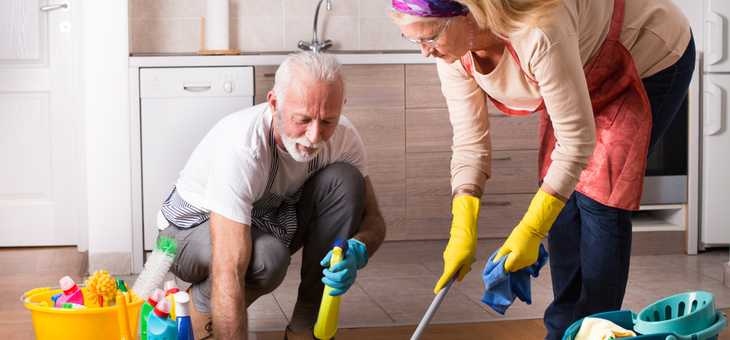It’s common knowledge that the majority of the time, women do more unpaid work than men. But just how much may shock you, and make you rethink the division of labour in your house.
Each year, the Melbourne Institute’s Household, Income and Labour Dynamics in Australia (HILDA) survey takes a snapshot of the nation’s home lives, interviewing more than 17,500 people across 9500 households.
This year’s report covers data from 2019, before our collective lives were upended by the arrival of the pandemic.
It found that women were doing a whopping 21 hours more unpaid work per week than men, with the gap being particularly wide between heterosexual couples with dependent children.
Read: ‘Hidden tax’ costing Aussie women half a billion
The study found housework was the most common form of unpaid work, followed by caring for children. Women also generally felt more time-stressed than men, with 38 per cent reporting they were “often” or “almost always” struggling to fit all tasks into a day.
Although still firmly weighted against women, the division of unpaid labour is actually improving, albeit slowly. This year’s figure of 21 hours of extra unpaid work is down eight hours compared with figures from the survey in 2001.
This is partly due to men doing a little bit more around the house, but the researchers note the shift is mostly due to women simply doing less.
In 2019, men recorded an average of 27.8 hours per week of unpaid work, which was up just over three hours from the 24.7 hours per week recorded in 2002. Women on the other hand averaged a whopping 48.7 hours per week, which actually represented a drop from the 53.5 hours averaged by women in 2002.
It pays to remember that these are the figures from before the pandemic. Since our lives changed in March 2020, the slight improvement women saw was wiped out completely.
Read: Women earning $2500 less than men
By May 2020, studies were already showing an explosion in women’s unpaid work. One year later and the situation was even worse.
A report from the Grattan Institute found that not only were women more likely to be doing more unpaid work, but that they were also more likely to have lost paid work as a result of the pandemic.
“Remote learning and the loss of formal and informal childcare and household support services led to a big rise in unpaid work during the lockdowns,” the Grattan Institute says.
“This unpaid work was disproportionately borne by women, and many found it impossible to juggle with their existing paid work commitments.
“Mothers in couples, and single parents (80 per cent of whom are women), were more likely to leave the labour force than other groups.”
Read: What the experts say about making a career change
The Grattan Institute says the COVID employment situation for women wasn’t helped by the government focus on supporting male-dominated industries.
“Between February and May last year, the construction sector lost less than 5 per cent of its work hours but got more than $35 billion of government assistance, whereas the hospitality sector lost more than 47 per cent of its work hours but got only about $1.3 billion of direct government assistance,” the institute says.
“Governments should ensure that any further stimulus goes well beyond the construction sector and includes at least temporary expansions of social programs and services.”
Who does the majority of the work around your house? Do you think the discrepancy in hours has increased or decreased since the start of the pandemic? Let us know in the comments section below.
If you enjoy our content, don’t keep it to yourself. Share our free eNews with your friends and encourage them to sign up.

